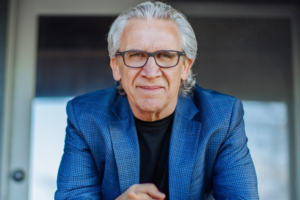One of the highest compliments you can receive is to hear someone say, “I trust you.”
Don’t take that lightly. Trust takes time to earn but can be lost quickly.
As a leader, trust is usually extended to you upfront. It’s “on loan,” so to speak, until proven untrustworthy.
However, it’s not uncommon for good leaders to be caught by surprise when they are not trusted quite as fully as they thought they were.
Sometimes these leaders are under pressure and cutting a few corners or have a blind spot that escapes them. Or, for another example, leaders whose drive, dreams and ambitions are just strong enough to result in behavior they would never do intentionally.
These circumstances are among the most difficult to catch. You’re on the go, carrying a heavy load, doing your best to lead the church or your ministry area forward, but not fully attentive to what is happening around you. And the people don’t seem to respond like they once did.
For example, they may have more questions. There’s nothing wrong with questions, but these feel more like resistance than seeking understanding. Or some of your leaders don’t seem as supportive and hold back some. You can feel a little distance.
How does this happen?
What can you do?
One of the best things you can do is talk to an honest friend who understands leadership. Someone you trust. Someone who is part of your church. They will often have an insight you can’t see. Be open and receptive. Don’t get defensive. Listen as you talk it through.
And to jump-start that conversation, let me offer three reasons people may trust you a little less than you would think, with a few thoughts of what you can do.
The key is to catch it now. What may be a little less trust today can lead to a steep erosion of trust over time.
3 Reasons People May Trust You Less Than You Thought
- They don’t sense that you have their best interest at heart. This first reason catches leaders by the greatest surprise. They never imagined not having the people’s best interest at heart; in fact, feel certain they do, and therefore feel blindsided when this happens.
So, how did it happen?
There are many ways. For example, you made a tough or unpopular decision. It was the right decision, but perhaps you made it too quickly or without process. Or, you said no to someone or many, again without being understood. Or you made a decision that seemed to benefit you more than them.
The specific possibilities are basically limitless, but here’s how the people feel; when the music stops, and there is only one chair, they perceive you will take that spot for yourself.
People never place full trust in a leader unless they’re confident he or she has their best interests at heart.
This can happen to any leader. Realities such as insecurities, pressure, a blind spot and so on can easily set this in motion, even though it doesn’t represent your heart in the matter.
Don’t ignore this situation and don’t panic.
Slow down; take an honest moment of reflection. Talk with a trusted friend. As long as this is not a long-term pattern, the remedy is relatively simple.
Have a conversation with those you may have offended, caused to doubt or run too quickly past.
Listen to them carefully.
Their opinion isn’t an indictment of you or your leadership; it’s their perception of you in the moment. And right or wrong, you need to know. Share your vantage point, but always take the high road.
Ask forgiveness if needed, and pay attention to what caused the slight erosion of trust so you can correct it in the future.
- You are tempted to hold back from full authenticity. When you are not entirely the real you, the people you lead can sense it. They may not know exactly what they feel, but they know something isn’t quite right.
It’s easy for this to happen. Perhaps you’ve been burned, betrayed or berated. It knocks the wind out of your sails and may cause you to hold back.
In the last point, the people are a little distant from you, in this point, you are a little distant from them. Either way, trust is diminished.
If you don’t catch this lack of being the real you, it can slowly escalate to an unintentional withholding of truth. You are not lying, just not full candor. That’s a thin line to walk. This doesn’t come from a duplicitous nature or a political bent. It’s more commonly comes from a place of hurt or lack of confidence.
People never fully trust a leader who is not authentic, not fully honest or candid and direct in communication.
Connection (or reconnection) is the beginning of the remedy.
Take a risk and follow this principle. If you lead from your heart, the real you, people will connect with you. If they connect with you, they will trust you, and if they trust you, they will follow you.
Be yourself and speak with confidence and candor.
- They have noticed you don’t always do what you say you will do. It happens. You’re busy, on the run, and you told someone you’d do something, and it slipped your mind.
It could have been anything. A phone call, email, a resource you promised to get for them or take care of a small problem. The specific circumstance isn’t the point here. The real issue is that you didn’t do what you said you would, and someone was counting on you.
It’s not a huge deal if this is a rare occurrence. Like being late for an appointment. If that’s rare, you receive grace, but if it’s a habit, you lose trust.
If any of these little things become even a slight pattern, it’s a bigger deal than you may realize. Here’s why. It communicates that you don’t value the person and that lowers trust.
People never fully trust leaders who do not keep their promises and do what they say they will do.
As strange as it might sound, it’s better that you don’t make small promises that you don’t need to. Let’s take a Sunday-morning example to explain what I mean. Rather than telling someone you will email them about something, ask them to email you. That is often appropriate.
Aside from examples like that, no matter how small, do what you say you will do. Use a simple system with your smartphone. Make a quick note for each one and follow through quickly.
Trust is a sacred element of leadership and the foundation of all relationships. Take care of it, and it will take care of you. {eoa}
Dan Reiland is the executive pastor at 12Stone Church in Lawrenceville, Georgia. He previously partnered with John Maxwell for 20 years, first as executive pastor at Skyline Wesleyan Church in San Diego, then as vice president of leadership and church development at INJOY.
For the original article, visit danreiland.com.
See an error in this article?
To contact us or to submit an article























